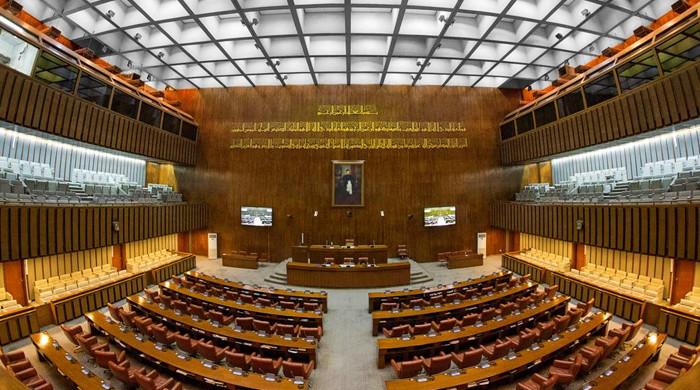Senate Introduces Bill for Whistleblower Protection Commission
A legislative proposal aimed at creating a commission responsible for the protection and oversight of whistleblowers was tabled in the Senate on Friday.
According to the details outlined in the bill, the commission is authorized to receive information from any individual, institution, or agency. However, a critical prerequisite is that the whistleblower must affirm the accuracy of the information being submitted.
Submissions must be formally presented in written form, accompanied by supporting documentation and pertinent materials. The commission is not obligated to act on information if a whistleblower opts to conceal their identity or provides a fabricated one.
The bill specifies categories of information that will be excluded from consideration. Specifically, any information perceived as detrimental to Pakistan’s security, sovereignty, strategic interests, or economic stability will be rejected.
Information pertaining to foreign relations, matters restricted under the Official Secrets Act, encouragement of criminal activity, records involving ministers and secretaries, or deliberations within the cabinet and its committees are also inadmissible.
Furthermore, the commission will not entertain information that is legally restricted, contravenes court orders, or infringes upon the privileges of parliament or other legislative bodies.
Trade secrets, confidential information, private communications with foreign entities, and details that could potentially impede ongoing investigations or legal proceedings will likewise be dismissed.
Information that poses a threat to an individual’s life, compromises law enforcement confidentiality, lacks public interest, or unduly invades personal privacy will be treated similarly.
The proposed commission would be empowered to summon individuals for sworn testimony, examine pertinent records and evidence, and scrutinize documents and witnesses.
Additionally, it may formally request access to public records. A designated officer of the commission would possess the authority to demand complete cooperation and secure necessary documents from governmental bodies, regulatory agencies, banks, and financial institutions.
The designated officer is required to evaluate the received information within a 60-day timeframe. If more investigation is deemed necessary, and the matter constitutes a criminal offense, the commission will refer the case to the appropriate authorities.
The legislation incorporates safeguards to protect whistleblowers from potential reprisals. Avenues for lodging complaints with the commission are available to whistleblowers who experience harm as a consequence of their actions; the commission will then forward these complaints to the relevant authority.
Should the information provided by a whistleblower prove accurate, the individual will be entitled to a reward equivalent to 20% of the recovered amount, along with formal recognition. In cases involving multiple whistleblowers, the reward will be divided equitably among them.
Conversely, the provision of false information is subject to penalties, including imprisonment for up to two years and a fine of up to Rs200,000, which will be directed to the person adversely affected by the misinformation.
The confidentiality of a whistleblower’s identity will be stringently protected. Any individual who compromises this confidentiality is liable to face a fine of Rs500,000 and a potential prison sentence of up to two years.



Comments (0)
No comments yet. Be the first to comment!
Leave a Comment